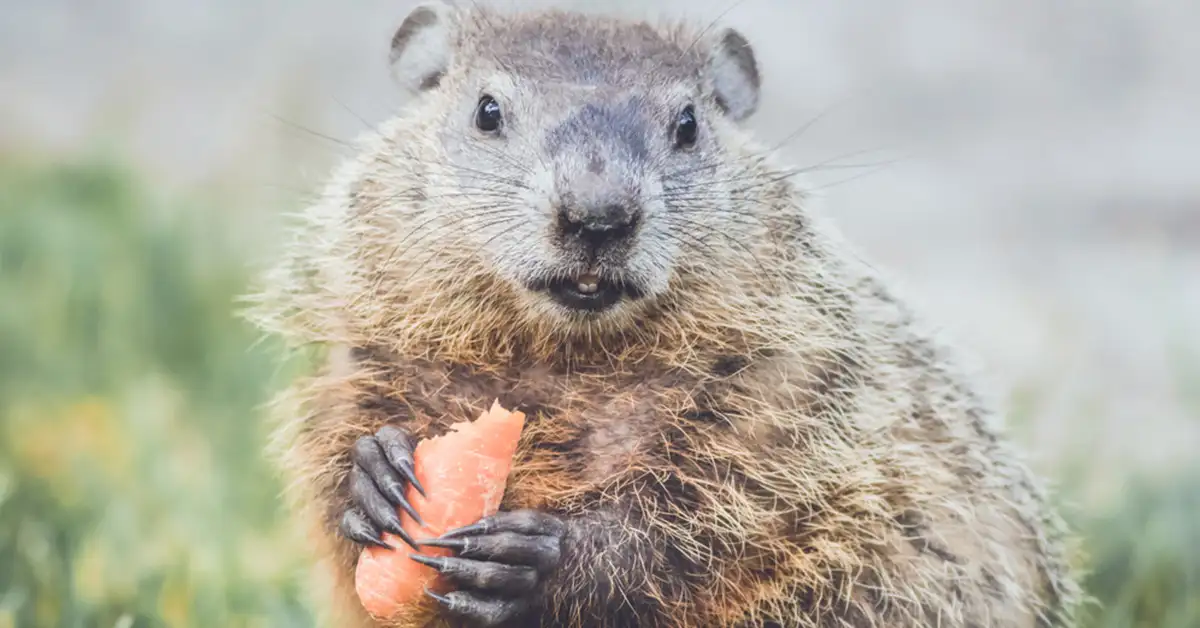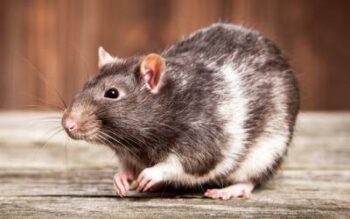
Groundhogs may seem cute and were the namesake of one of Bill Murray’s best movies, but groundhogs on your property can be a huge problem.
Also known as woodchucks, whistle-pigs and land beavers; groundhogs are related to squirrels. Unlike those nut gathers, groundhogs are “true hibernators.” From late autumn through late winter or early spring, their heart rate and body temperature drop dramatically. They may wake up a few times for just a few days and then go back to torpor. Male groundhogs often become active first in the spring in preparation for mating season.
Where Do Groundhogs Live?
As the name implies, they build burrows in the ground in a wide range of territory in the United States. In preparation for winter they will often dig a chamber deeper in the ground below the frost line in which they hibernate.
Groundhogs dig large, extensive tunnels with many chambers and leave huge piles of dirt at the entrances – as much as 700 pounds of dirt can be excavated for just one den, and a territory could have four or five dens. Entrances to groundhog burrows can be as wide as 10-12 inches. Besides being unsightly, they’re potential hazards. Because they like to burrow near recently installed fence posts or trees, they can undermine their integrity.
Are Groundhogs Aggressive?
Yes, groundhogs can be aggressive. In 2018, a groundhog even chased a woman in her office parking lot. Like other pests, groundhogs can carry rabies. They’ve also been known to attack dogs. That’s why it’s important to get professional help, like us at Arrow Exterminating, to handle your groundhog infestation.
Groundhogs will also attack your garden. Worse, they don’t just eat a few vegetables. Instead they’ll take one bite out of a zucchini or pumpkin, etc. and then take a bite out of the next one and so forth, ruining an entire crop.
Preventing groundhogs is easier for a homeowner to do on their own than removing ones already there. Placing floating row covers on top of your crops means your yard won’t look like a convenient salad bar for groundhogs. Certain types of fencing can also deter groundhogs from entering your property.
What Smells Do Groundhogs Hate?
Groundhogs hate the smell of cayenne pepper and garlic so some gardeners sprinkle that around their yard but it only lasts as long as the next rain. Others will create castor oil sprays since groundhogs don’t like that odor as well and mix in cayenne pepper but, like the powder, it doesn’t last very long in rain. Some garden supplies sell predator urine to sprinkle on your property, but you might not like the smell of that either.
Deterring groundhogs through scent or by sprinkling Epsom salt around on plants they might eat to create a terrible taste is often recommended online but ultimately isn’t a good idea. Powder and salts will wash away in rain, the scents can bother you, etc. Allowing professionals like us to handle a groundhog infestation or advise you how to avoid one is the better solution.
Let Arrow Exterminating Handle Groundhogs
The best way to deal with a groundhog is to call us at Arrow Exterminating. We’re the experts for groundhog problems. Let us help you get back to living in a critter-free environment. To get started, contact Arrow Exterminating today.




